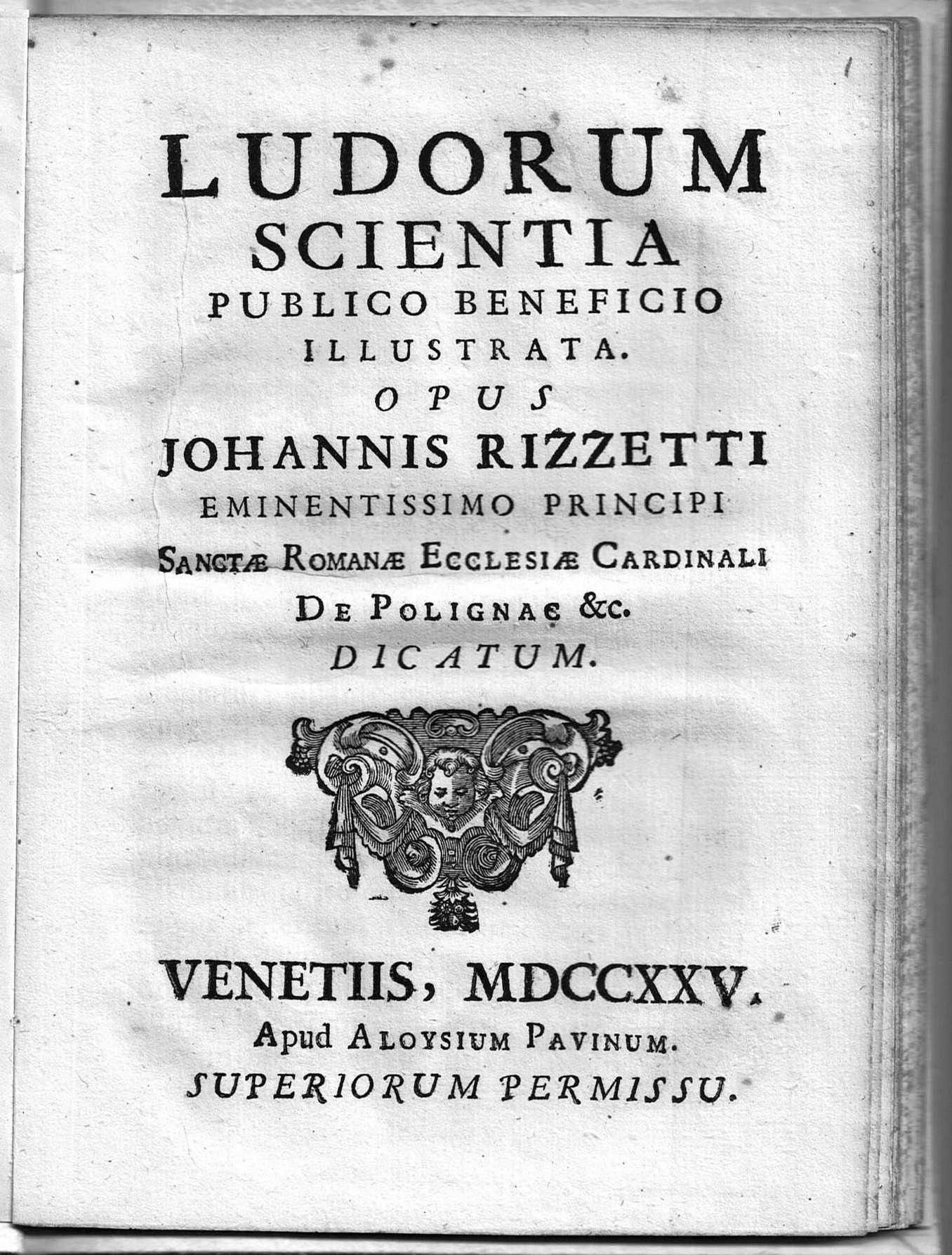Ludorum scientia publico beneficio illustrata.
- SIGNED
- Venice: Alvise Pavini, 1725
Venice: Alvise Pavini, 1725. First edition. Very Good. Quarto (23 cm); 3 preliminary leaves, 40 pages (lacks blank pi4, as in nearly all known copies). Woodcut vignette on title page; woodcut headpiece, initials and ornaments. Mathematical formulae in text. In recent plain paste paper. Few spots.
Giovanni Rizzetti's Scientia Ludorum had a notable impact on probability theory and early mathematical approaches to games. Rizzetti wrote this text after a lively dispute with Daniel Bernoulli about gambling. His work applied theories developed by Jakob Bernoulli (in "Ars conjectandi") to gambling, focusing in particular on the trend of probabilities as the number of trials increases. As the preface advertises in capital letters: "Luck in games does not behave as people think it does.... In games of chance, the art of conjecture leads to determining, by calculations that leave no doubt, what the players can infallibly gain or lose in the long term." (In ludis fortuitis ars conjectandi eo perdutitur, ut indubitato calculo determinetur, quid infallibiliter aleatores longa ludendi opera acquirere vel amittere possint.)
Giovanni Rizzetti's Scientia Ludorum had a notable impact on probability theory and early mathematical approaches to games. Rizzetti wrote this text after a lively dispute with Daniel Bernoulli about gambling. His work applied theories developed by Jakob Bernoulli (in "Ars conjectandi") to gambling, focusing in particular on the trend of probabilities as the number of trials increases. As the preface advertises in capital letters: "Luck in games does not behave as people think it does.... In games of chance, the art of conjecture leads to determining, by calculations that leave no doubt, what the players can infallibly gain or lose in the long term." (In ludis fortuitis ars conjectandi eo perdutitur, ut indubitato calculo determinetur, quid infallibiliter aleatores longa ludendi opera acquirere vel amittere possint.)


